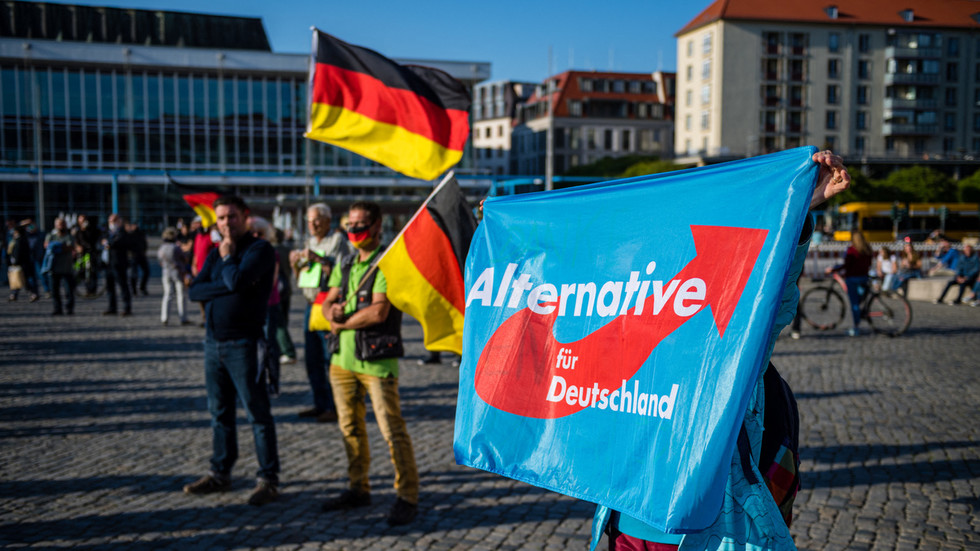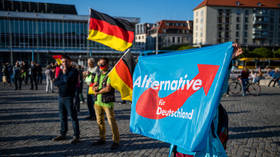
The Institute for Human Rights has described the right-wing Alternative for Germany party as a threat to the country’s democracy

FILE PHOTO: A supporter holds a banner of Germany’s far-right Alternative for Germany (AfD) at a rally in Dresden, eastern Germany. © STRINGER / AFP
The right-wing Alternative for Germany (AFD) party poses such a threat to Germany’s democratic system that it may be time for authorities to crack down, the country’s Institute for Human Rights has argued. A recent poll indicated the political force enjoys public support on par with Chancellor Olaf Scholz’s Social Democratic Party (SPD).
The watchdog, which is funded by the German parliament, issued a report on Wednesday entitled: “Why the AFD could be banned.”
In it, the institute posits that all the prerequisites are already in place for the country’s constitutional court to consider such an option. According to the watchdog, it arrived at this conclusion after studying the AFD’s objectives and remarks made by the party’s leadership and members.
The report, among other things, claims that the party’s endgame is the dismantling of Germany’s democratic system. Moreover, it supposedly seeks to do away with the cornerstone principle enshrined in the country’s constitution, that every person is guaranteed basic rights.

The AFD has made a concerted effort to “shift the boundaries of what can be said, and thus of the whole [political] discourse,” so that the public and politicians become habituated to the party’s “racist, nationalist positions,” the report went on to warn.
The power to outlaw the party lies with Germany’s Federal Constitutional Court. However, one of the two chambers of parliament or the government must set the process in motion first, the institute noted.
While they have no say in such decisions, the authors of the report described their mission as revitalizing the discussion over the party as well as “sharpening the awareness on political, government and society levels of the danger that the AFD poses.” Once this has been achieved, the institute hopes that “government and political actors [will] act accordingly.”
The only means of effectively countering this supposed threat in the meantime would be for all other political forces to “unequivocally distance themselves from the AFD at the federal, regional and community levels,” the report said.
Meanwhile, a poll released by public broadcaster ARD last Thursday indicated that as many as 18% of Germans would vote for the AFD if elections were held now. The leading party in the ruling coalition, the Social Democrats, chalked up the same figure, the survey showed.
In the 2021 elections, the AFD garnered just 10.3% of votes; however, its popularity has been steadily on the rise since.




